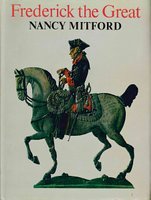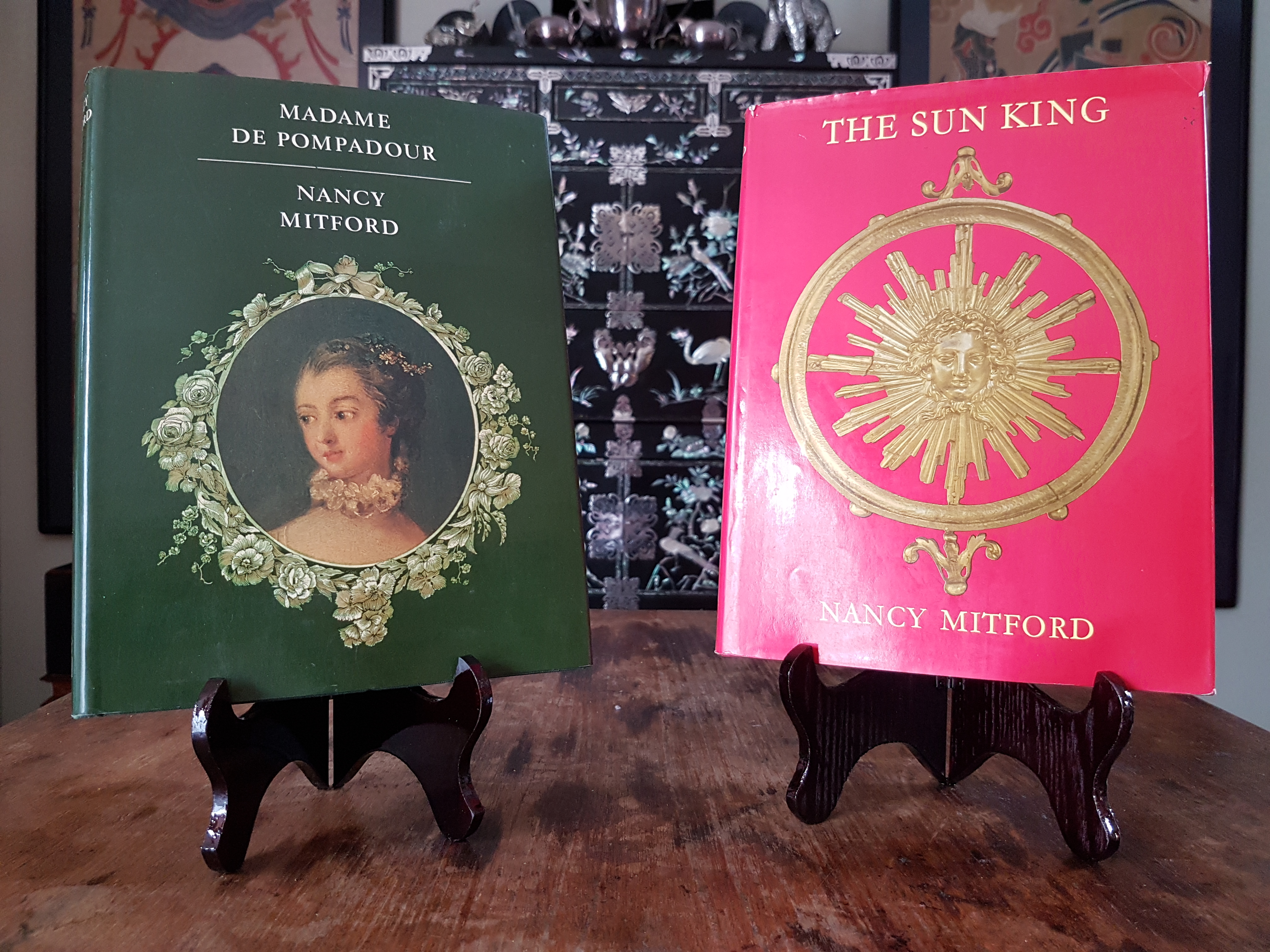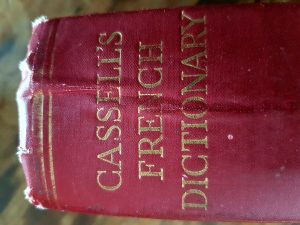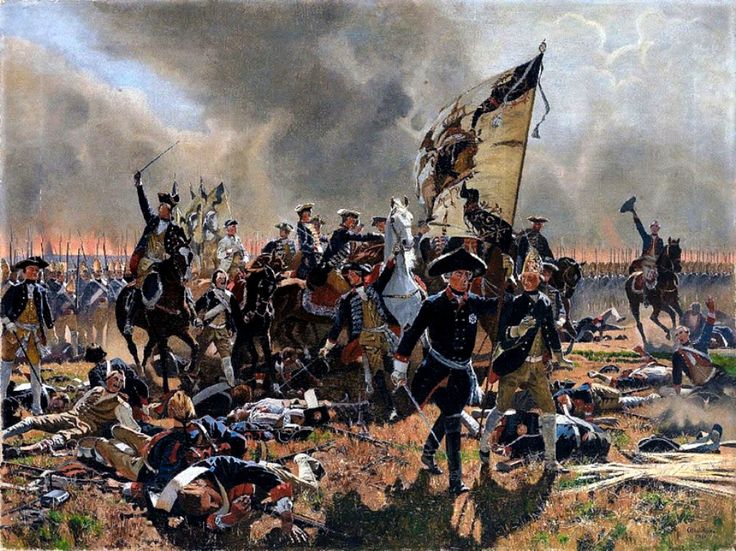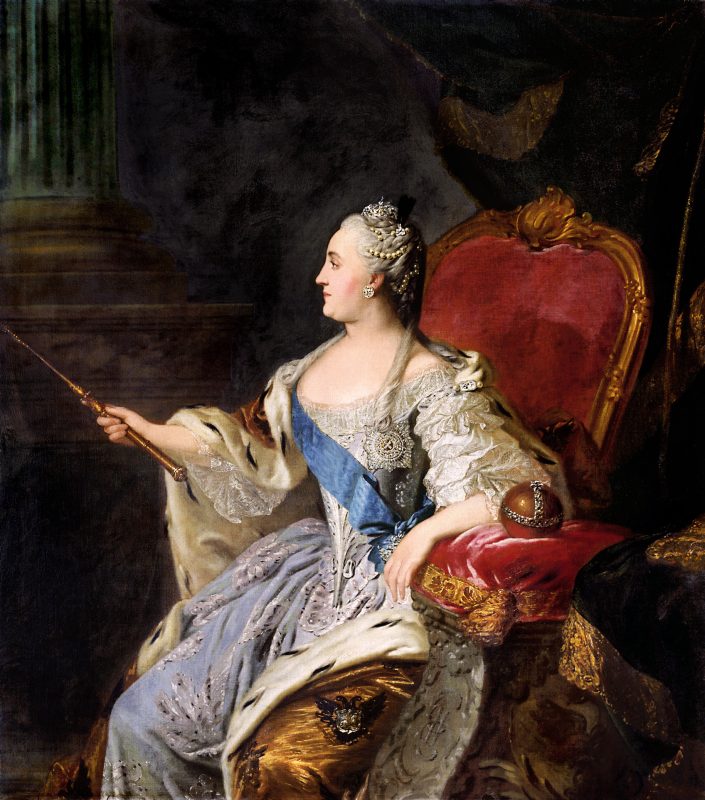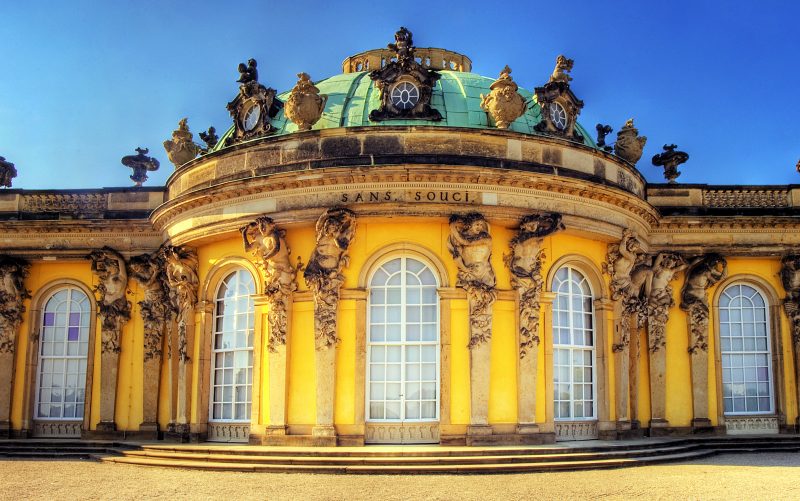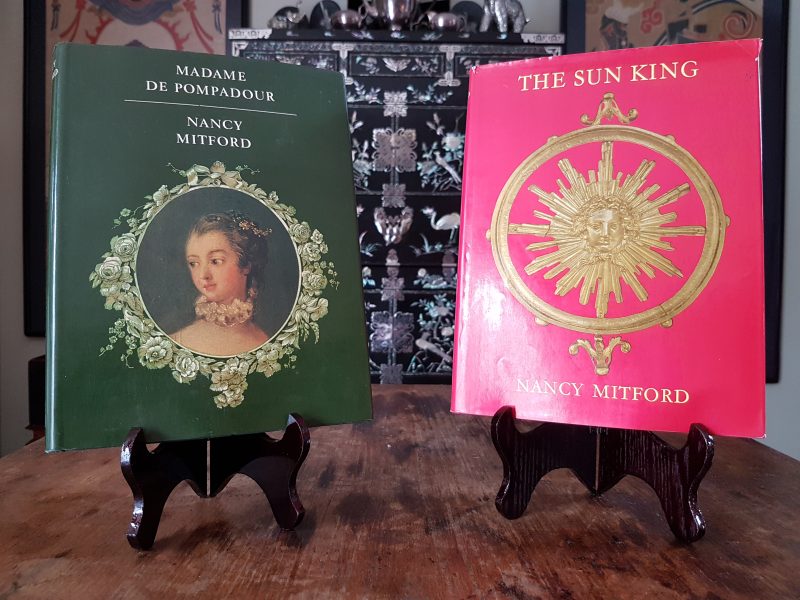At last! It’s taken decades, but my Mitford collection is now complete. I’m referring to Nancy Mitford’s 4 historical biographies, rather than her novels. In order of publication, the biographies are: Madame de Pompadour (1954), Voltaire in Love (1957), The Sun King (1966), and Frederick the Great (1970).
Attentive readers might remember this photo from an early post on this blog:
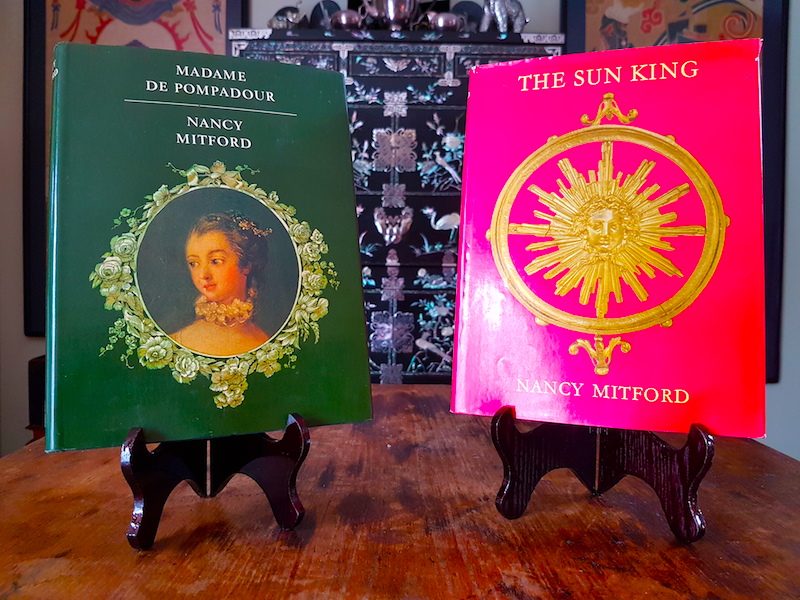
Madame de Pompadour and The Sun King, both by Nancy Mitford. These are the lavish American editions published by Harper & Row.
At the time, these were the only items in my Mitford collection. They’ve followed me from home to home through 4 countries over the last 30-odd years, which is why the dust jackets are slightly the worse for wear. I had once owned a hard cover copy of Frederick the Great, but I donated it to a library that one of my former professors was setting up at Western University (my alma mater, formerly known as the University of Western Ontario). It’s called the Pride Library. You can visit its website here: http://www.uwo.ca/pridelib/.







